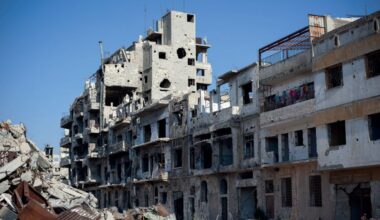Project summary
The project analyses the diachronic, fluctuating population dynamics of southern Palestine and Jordan from the 6th to the 15th century, to detect changes at play in the landscape of arable lands and desert, and trace the consequent adaptation of local populations of agriculturalists (fallahin) and nomads (bedu).
Project details
Location: Palestine, Jordan
Year(s): 2018-2019
Project director(s): Claudine Dauphine
Lead institutions and funding:
- Augustus Foundation
- CBRL
Project description
Between the Palestinian coast and the vast desert of southern Jordan stretches an enormous semiarid buffer-zone. Bisected by the Rift, the Ghôr depression, this marginal arid zone between the sown and the desert, between the subtropical Mediterranean and the “continental arid” climates, was the setting for various modes of interaction between agriculturalists and nomads from the late Byzantine Empire (6th and early 7th centuries AD) to the Mamluk Sultanate (13th – 15th centuries): sedentarism, nomadic infiltration, semi-sedentarisation, sedentarisation, reversal to nomadism, and temporary settling for the servicing of pilgrims on the road to Mecca, the Darb al-Hajj.
Using new research tools – Geographical Information System (GIS) – in conjunction with traditional archaeohistorical interpretation of the past, an innovative geo-spatial approach applied to landscape archaeology was introduced in 2008 by archaeologist Claudine Dauphin and GIS expert Mohamed Ben Jeddou in an attempt to capture across ten centuries the diachronic, fluctuating population dynamics of southern Palestine and Jordan, to detect changes at play in the landscape of arable lands and desert, and trace the consequent adaptation of local populations of agriculturalists (fallahin) and nomads (bedu).
The project has received financial support from the Augustus Foundation since 2014 and has been affiliated to CBRL since 2011.
Project bibliography
Dauphin, Claudine; Ben Jeddou, Mohamed. 2020. Fallahin and nomads in the Southern Levant from Byzantium to the Mamluks: population dynamics and artistic expression. Bulletin of the Council for British Research in the Levant 2018-2019, p 24.
Published:06 December 2021















